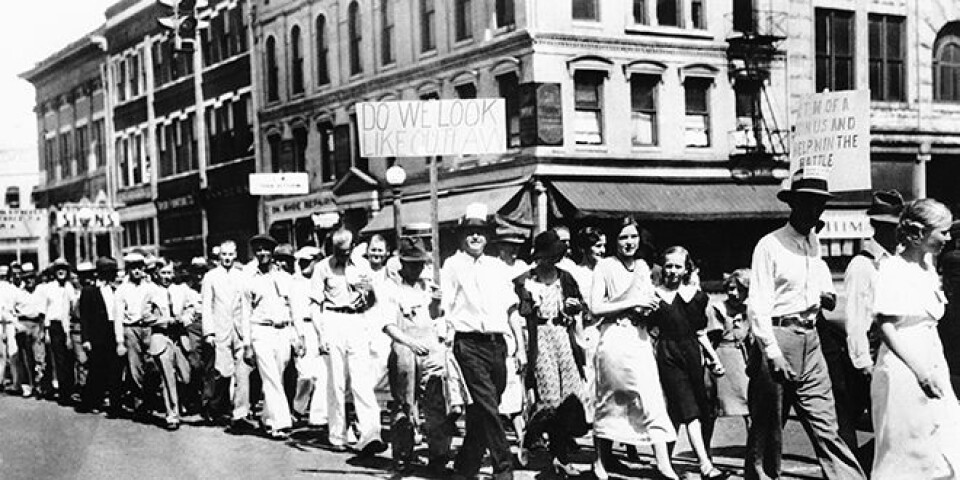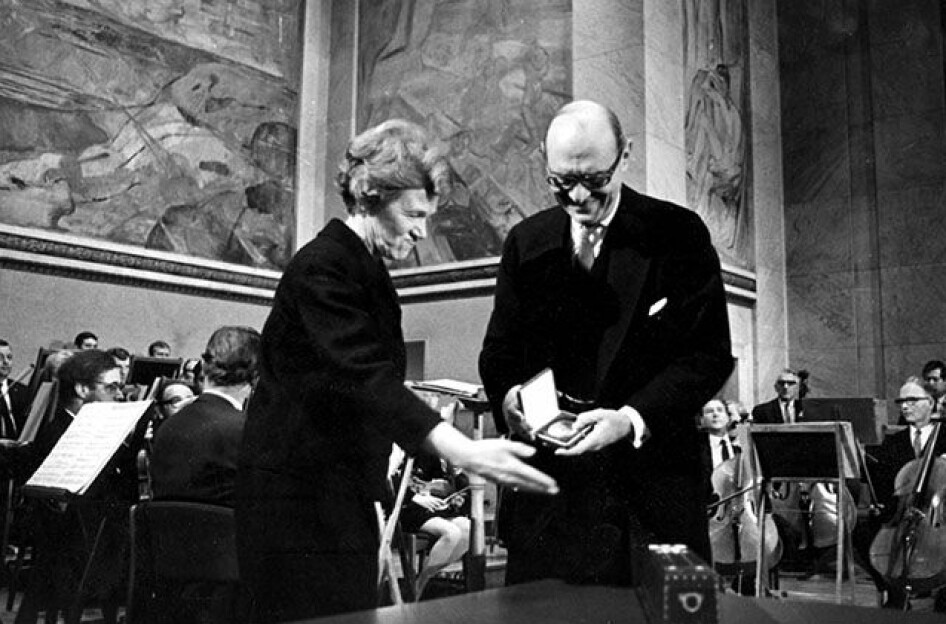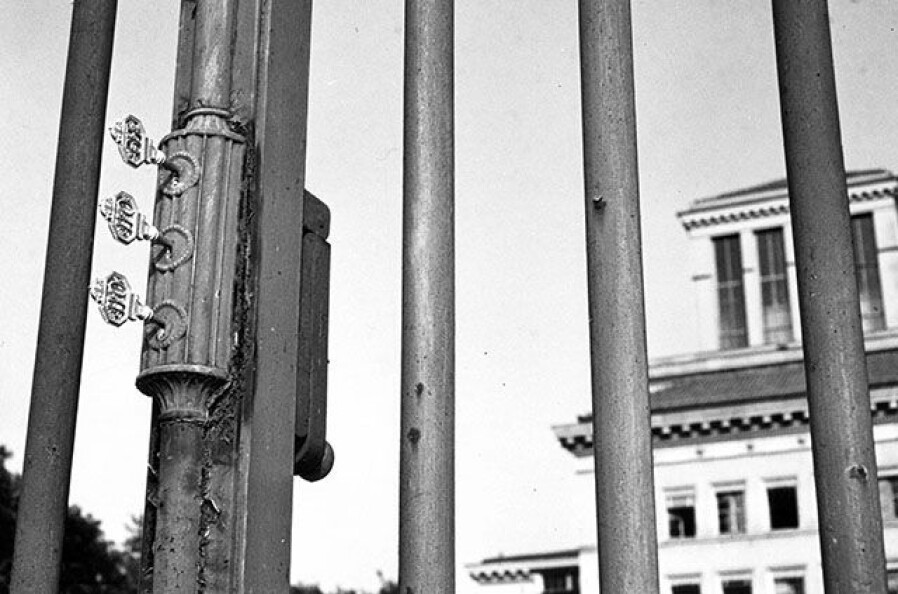This article is produced and financed by University of Oslo - read more

The International Labour Organization is 100 years. Use it to create a new global social policy, says researcher.
In a globalized world, many governments have prioritized the economy over social issues. We should look to ILO and create a global social policy for the 21st century, says researcher Daniel Maul.
The International Labour Organization (ILO) was established in 1919 as part of the Treaty of Versailles and war reparations issues in the aftermath of the First World War. The starting point was a firm conviction that enduring peace could be ensured only through social justice, and the mandate of the organization was – and remains – to work for social equality and labour rights.
Today, ILO is an agency of the United Nations system comprising 187 member States.

Historian Daniel Maul from the University of Oslo has written the first comprehensive account of ILO's history. He believes the 100-year-old jubilant still has an important role to play.
“In a globalized world, many governments have prioritized the economy and dealt with social issues as secondary concerns. In this respect, I think we have much to learn from ILO's commitment to an overall social goal for all policies, both national and international”, says Maul.
This obligation is embodied in ILO’s Declaration of Philadelphia in 1944, which according to Maul, is the main landmark in the history of the organization.
“The declaration is based on the lessons of the interwar period demonstrating the significance of social injustice in the emergence of fascism. It was emphatically stated that ILO's activity was to be based on a foundation of fundamental human rights, and that if political rights are to be ensured, social rights must be realized at the same time”, the scholar says.

A «birth certificate» for the modern welfare state
According to Maul, the link between social and political rights has been ILO's primary success factor. He characterizes the Declaration of Philadelphia both as the ideological foundation of the modern welfare state and as a good recipe for how to combine democracy with an open economy.
Today, globalization, climate change and migration are creating challenges related to social injustice and pressure on labour rights. At the same time, digitization, collaborative consumption and new forms of association with working life are combining to alter the nature and conditions of work.
“ILO can help create a working life that safeguards social considerations in a world characterized by major structural changes. If there is anything ILO has demonstrated in the past, it is precisely its ability to make itself relevant for new groups of workers and new types of work. The most recent example is the ILO Convention on the Rights of Domestic Workers and home workers’ rights”, he says.
Through this convention from 2011, ILO included groups that had previously fallen outside the statute-regulated workforce. According to Maul, the Convention also helped to normalize a work sector that is usually regarded as part of the informal economy.
“The Convention strengthened women's rights, because it is primarily women who work in this sector. Let me also emphasize that it has reinforced a particularly vulnerable group of workers in a sector where we find modern forms of slavery”, Maul said.
Success born of a fiasco
Although the Treaty of Versailles is seen by many as a fiasco, Maul maintains that ILO has been a success in many ways. In his brand new book, he highlights the historical significance of the organization's tripartite collaboration. Norwegians know the interaction between workers, employers and government authorities as a central part of the "Norwegian model", but when the ILO was formed, it was unique that unions met with government officials in an institutionalised cooperation.

“The ILO has adopted a number of important conventions that have contributed to strengthening workers' rights worldwide. The organization has been an important global forum for debates on issues including poverty, distribution policies and human rights and has established international standards in many important areas”, Maul says.
“In general, ILO’s history demonstrates an inclusive profile that stands in contrast, for example, to that of the League of Nations. Whereas Germany was blamed for World War I and was refused membership in the League of Nations, the country was admitted to the ILO already in 1919”, says Maul.
Since the first ILO conventions on child labour, the minimum wage and the eight-hour workday saw the light of day in 1919, the organization has adopted 190 International labour standards. In 1998, the most important of these were consolidated in a declaration of fundamental principles and labour rights.
“This was done to establish a common platform and set minimum requirements for all member states during a turbulent period following the fall of the Berlin Wall. The declaration addressed organizational and bargaining freedom, prohibition of child labour, prohibition of forced labour and prohibition of discrimination in the workplace”, the author explains.
Impact depends on the Member States
The ILO has no coercive instruments to use against members who do not ratify the conventions or do not live up to them in practice. The organization's impact effectiveness depends on the willingness of the Member States to comply with international regulations. According to Maul, this willingness is currently faltering, but this is not due to Donald Trump alone.
“There is no doubt that the ILO lost momentum in the 1980s because of neoliberalism. The trade unions, which have been the driving force in the ILO, have long been under pressure both within and from outside the organization”, Maul says.
The scholar believes that it has been generally easier to achieve a breakthrough in favour of very basic rights than for more extensive international labour standards such as health care, pensions and the like. In this respect, it was also easier for the ILO in the 1990s, when the organization was able to link up with the discussion on general human rights debate, which put more emphasis on political rights rather than social rights.
“But it is important to underscore that the ILO has always regarded the core labour standards in the 1998 declaration as “enabling" rights, that is, rights that laid the foundation for social rights to be realised. What is particularly important, perhaps, is the freedom to organize, which allows unions to fight for workers’ social right”, says Maul, adding,
“As soon as you start talking about topics such as migration and basic social security, it becomes virtually impossible, in terms of policy, to reach any kind of consensus among the Member States”. Many governments, including those that have traditionally been supporters of the ILO, oppose to a greater extent the international conventions regarding social rights and labour rights.
According to Maul, the political climate characterized by neo-nationalism, protectionism and a divergence away from multilateralism makes it more difficult for the ILO to be heard today.
"Paradoxically, this is happening concurrently with a growing awareness of the need to solve social challenges created by globalization. If the ILO is to be able to make meaningful contributions towards solving these challenges, it is going to need the political support of the Member States. The past 100 years have shown that the ILO has been an organization for difficult times, and I hope Member States once again, as they have done so many times before, will be willing to use the organization as a tool to design global social policy", Maul concludes.
Reference:
D. Maul: «The International Labour Organization. 100 Years of Global Social Policy», 2019, International Labour Organization


































